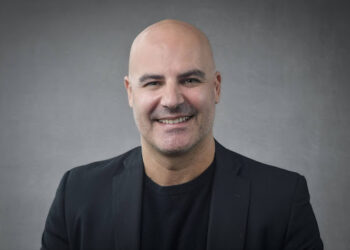The journey to becoming an NP encompasses a series of educational steps and experiential learning that culminates in the expertise to provide specialized care. For nurses holding a Master’s degree, the path to advanced practice includes pursuing further specialization through a post-master’s NP program. These programs are designed to refine clinical skills and theoretical knowledge, equipping nurses with the proficiency to meet the evolving demands of healthcare. If you’re considering advancing your nursing career to the next level, a deeper understanding of post-master’s NP programs is essential. Below, we delve into what prospective students need to know about these specialized programs.
Understanding the Landscape of Post-Master’s NP Programs
The educational terrain for post-master’s NP programs is vast and varied, offering many avenues for nurses to focus their skills. These programs are intended for registered nurses who have previously obtained a master’s degree in nursing and are looking to gain additional certifications or change their area of specialization. They serve as bridges to new opportunities in patient care, research, and education within the healthcare sector.
Post-master’s NP programs cater to the evolving landscape of the nursing profession, and they are frequently updated to mirror current healthcare trends and patient needs. Such programs consider the complex nature of modern medicine and ensure that nurses are equipped with comprehensive, up-to-date practices. Whether NPs aspire to expand their already broad knowledge base or specialize in fields like pediatrics, mental health, or gerontology, post-master’s programs can pave the way.
Flexibility is key in these programs, as they often offer both full-time and part-time tracks to accommodate working professionals. Moreover, many institutions provide online courses, like the post masters NP program from the University of Cincinnati, which allows for a balance between career, education, and personal life. This accessibility is crucial for maintaining employment while pursuing further specialization.
Breaking Down the Curriculum: What to Expect From Advanced NP Courses
Advanced courses within post-master’s NP programs build upon foundational nursing knowledge while emphasizing the specialized skills required for expert practice. The curriculum typically includes advanced pathophysiology, pharmacology, and health assessment courses that hone diagnostic and clinical decision-making abilities.
Beyond theoretical knowledge, these programs integrate courses focused on health policy, ethics, and leadership. These subjects are integral for NPs who often take on roles that go beyond individual patient care to encompass system-wide healthcare improvements. Such courses prepare NPs to navigate complicated healthcare environments and advocate for patients and communities.
Many programs also incorporate a robust amount of research coursework, equipping students with the methodologies and analytical skills necessary to evaluate and implement evidence-based practices. This focus on research bolsters the NP’s role in improving patient outcomes and optimising healthcare delivery.
Clinical Requirements and Real-World Experience in Post-Master’s Programs
Clinical practicum requirements are a cornerstone of post-master’s NP programs, ensuring hands-on, real-world experience before graduation. These clinical hours are comprehensive engagements where students work under the guidance of experienced NPs or physicians and are integral for gaining practical expertise in their chosen specialization.
Typically, programs mandate several hundred to over a thousand clinical hours, with variations depending on specialization and state requirements. The thorough nature of these experiences prepares graduates to be proficient and confident in their clinical abilities, having applied their advanced knowledge to actual patient care scenarios.
In addition to traditional in-person clinical placements, some programs offer immersive simulation experiences and virtual practicums. These novel approaches complement the learning process, particularly when in-person experiences are not feasible or require augmentation.
Preparing for the Next Step: Certification and Licensure Post-Graduation
Graduation from a post-master’s NP program is not the final step towards practicing as an NP. Certification and licensure are vital components that authenticate an NP’s expertise and grant the legal authority to practice. Different specializations may require distinct certification exams, which are critical to demonstrate proficiency in the chosen field.
Prospective NPs should plan for these exams by acquainting themselves with the relevant certifying bodies, such as the American Nurses Credentialing Center (ANCC) or the American Association of Nurse Practitioners (AANP). Comprehensive review courses and study materials can be incredibly helpful in ensuring readiness for these rigorous exams.
Overall, enrolling in a post-master’s NP program is a significant career step that promises advantageous professional growth and improved patient care outcomes. The intense curriculum, specialized clinical practice, and licensure requirements all build towards a rewarding future in advanced nursing practice. Whether through direct patient care, leadership roles, or policymaking, NPs who have pursued this pathway are well-equipped to face the challenges of contemporary healthcare and make a lasting impact on the lives of those they serve, similar to how pinay viral latest trends influence and shape public awareness in real time.




